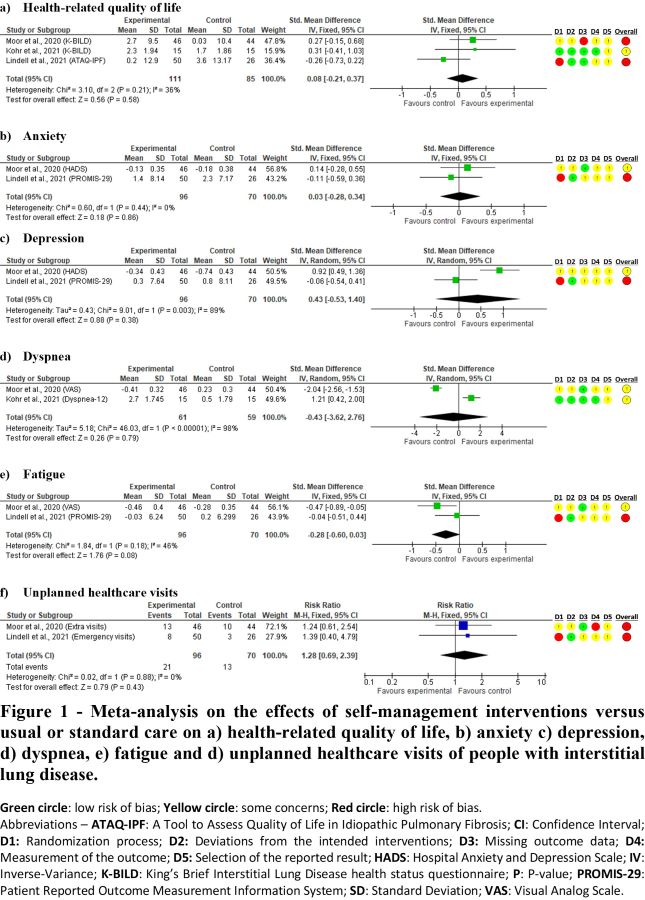Abstract
People with interstitial lung disease (ILD) want to actively manage their condition, however, the effects of self-management interventions (SMIs) in this population have not been synthesized. This review summarizes the effects of SMIs on health-related quality of life (HRQoL), functional status, psychological and social factors, symptoms, exacerbations, healthcare utilization, and survival, in people with ILD.
Six digital databases were searched in May 2022 with monthly updates until February 2023. We included randomized trials implementing SMIs, defined according to Effing et al. [Eur Respir J 2016; 48(1): 46?54], in adults with ILD. Risk of bias and quality of evidence were assessed with the Cochrane RoB-II and the GRADE. Meta-analysis was used to summarize results.
Four studies examining 217 participants (81% men, 71 years old, 91% idiopathic pulmonary fibrosis) with highly heterogenous SMIs were included. No statistically significant differences were observed for HRQoL or any of the secondary measures (figure 1). The quality of evidence ranged from low to very low.
Current studies show that SMIs have no significant effect on people with ILD. This conclusion is limited by high methodological heterogeneity. Studies optimizing SMIs to target the individual needs of people with ILD, and a universal, and consensual definition of SMI are required.
